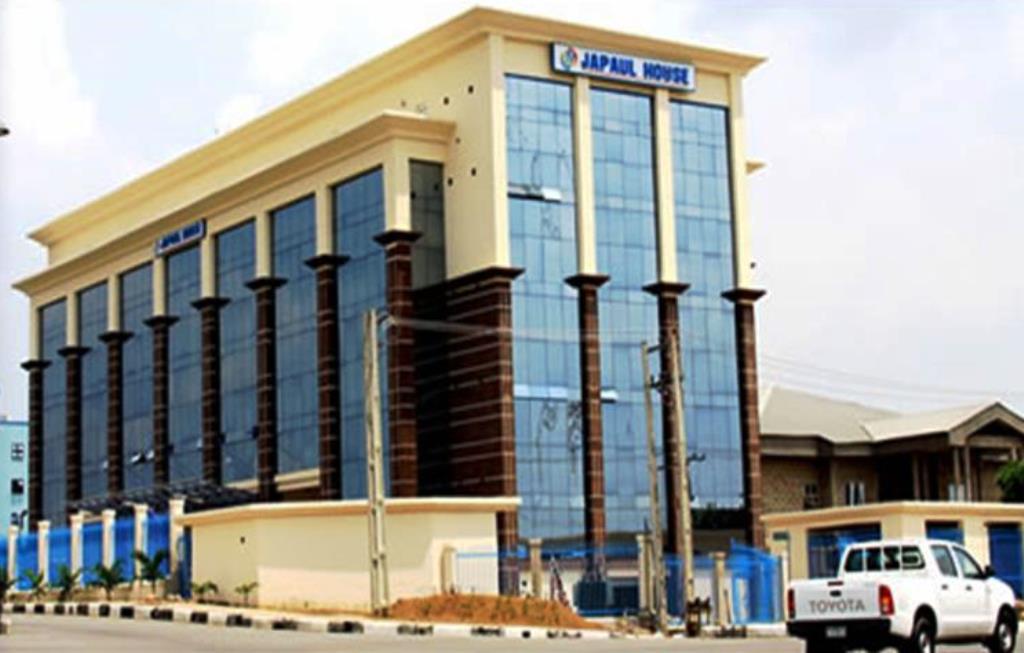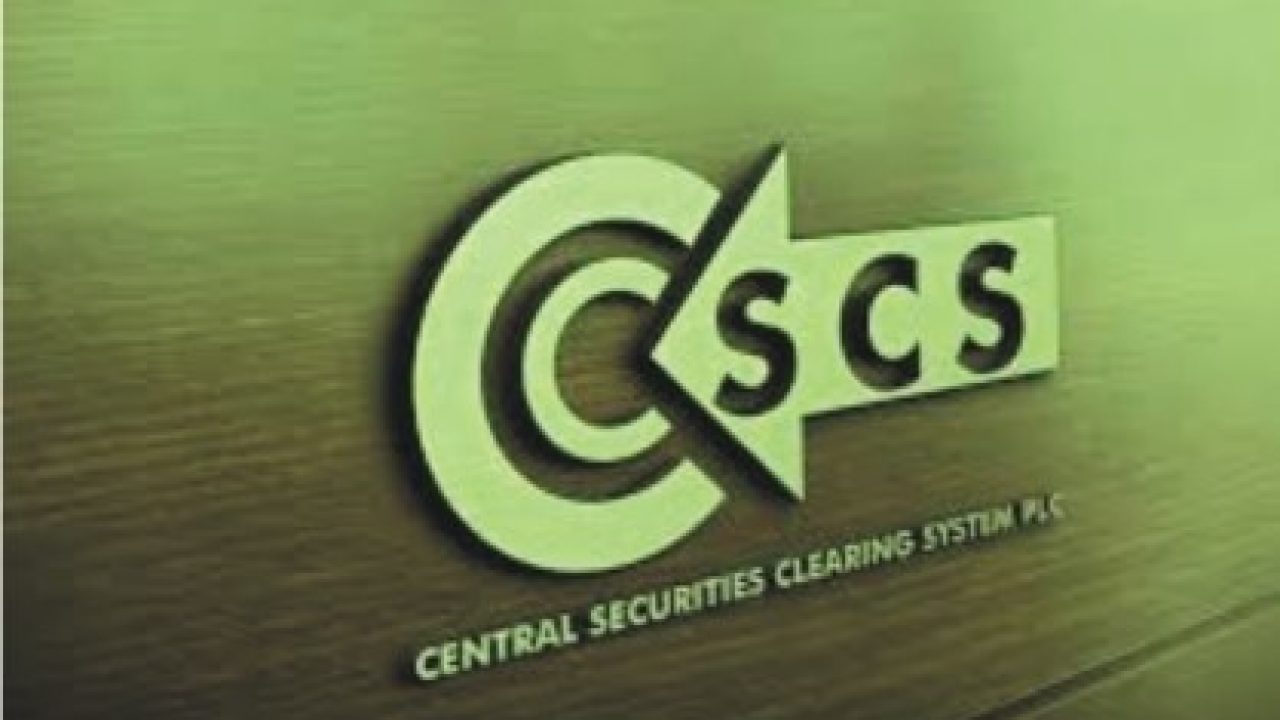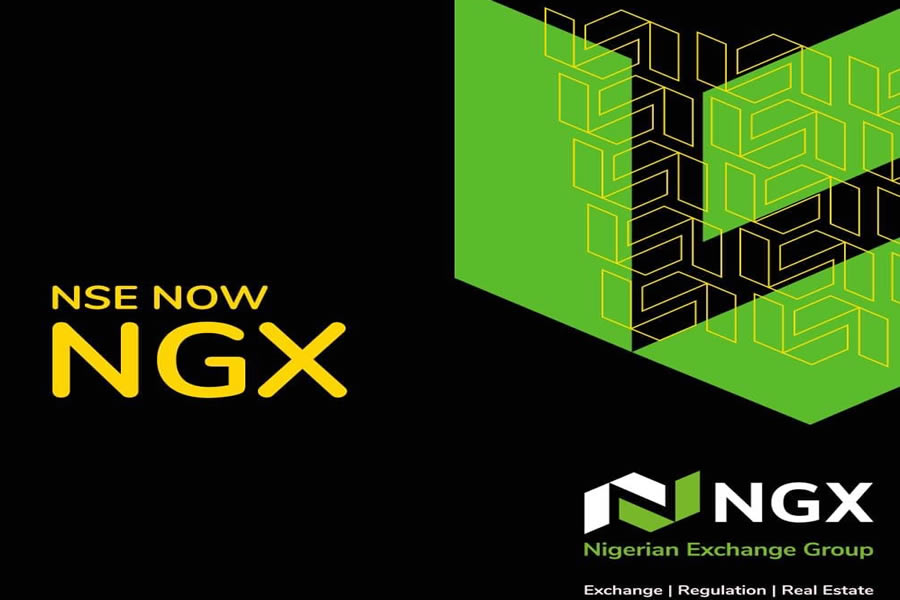Economy
Japaul Operations Under Serious Threat

**As Access Bank Gets Court Order to Seize Properties
By Dipo Olowookere
If urgent steps are not taken, Japaul Oil & Maritime Services Plc, one of the companies listed on the Nigerian Stock Exchange (NSE), may not be able to conduct its normal business interests.
This is because Access Bank Plc, another publicly quoted firm, has obtained a Mareva judgment to virtually take control of the company.
In suit No: FHC/L/CS/29/19, Justice C. J. Aneke of the Federal High Court sitting in the Lagos granted the lender “An Order for the immediate Arrest and detention of the Vessels MV JAPAUL A TUGBOAT AND MV DOMINON (MV PINA) TUGBOAT, THE VESSELS JD-1 DREDGER and JD 11 DREDGER the 1st, 2nd, 3rd and 4th Defendants (the mortgaged properties) anywhere they may be found within the Nigerian territorial waters within the jurisdiction of this Honourable Court pending the hearing and determination of the substantive suit.
The judge also granted the bank, “An ORDER OF MANDATORY PRESERVATIVE INJUNCTION is made restraining the 3rd Defendant, JAPAUL MINES & PRODUCTS LIMITED, JAPAUL OIL & MARITIME SERVICES PLC AND PAUL ABIODUN JEGEDE, OWNERS OF JAPAUL A TUGBOAT AND MV DOMINION (MV PINA) TUGBOAT, THE VESSELS JD-1 DREDGER AND JD-11 DREDGER the 1st,2nd, 3rd, and 4th Defendants (the mortgaged properties) from registering any change or charges or mortgages to the ownership of the 1st and 2nd Defendants pending the hearing and determination of the substantive suit.”
In addition, the financial institution got, “An ORDER OF MAREVA INJUNCTION restraining the 3rd Defendant; JAPAUL MINES & PRODUCTS LIMITED, JAPAUL OIL & SERVICES PLC and PAUL ABIODUN JEGEDE, OWNERS OF JAPAUL A TUGBOAT AND MV DOMINION (MV PINA) TUGBOAT, THE VESSELS JD-1 DREDGER AND JD-11 DREDGER the 1st, 2nd 3rd and 4the Defendants herein, their agents, officers, assigns from operating the account maintained with the banks listed in schedule hereto including issuance of cheques, bank drafts, cash withdrawals or anything howsoever that would cause any sum of money to be removed from the said account pending the hearing and determination of the substantive suit.”
In a report, Proshare said, “The Mareva order made it impossible for the company to operate its accounts and sustain its activities as a going concern; the consequence of which threatened the jobs of hundreds of workers employed by the company.
“While this was at play, the listed company represented that it met its minimal requirements as a listed entity; yet the market was not availed of this information; especially as it relates to market being properly apprised of the situation and the potential contingent liabilities appropriately priced into market valuations. This is a matter we intend to interrogate in subsequent reviews on the development as it relates to the issue of market disclosure and corporate transparency.
“Far more pertinent must be the discovery that the company followed through on the complaint procedure put in place by financial regulators on matters of this type, as a means of market friendly resolution of banking excess charges with material consequence on profitability (including shareholder value). The firm represents that when such a formal complaint was made; the regulators advised them to “stay on the queue” as several cases of this nature was pending.
“This alleged response from a market regulator requires some deep reflections as it undermines the integrity of timely problem resolution mechanisms put in place to build confidence in the market and promote a veritable ‘ease of doing business’ climate.”
Japaul claimed in the court papers that it had approached Access Bank to complain about the exorbitant charges it noticed in its corporate account with the bank after an internal financial audit. The company requested that the excess charges be reversed and duly credited back into its account.
The bank declined and insisted that Japaul was in debt to the bank, and therefore, should pay up on its debt first.
While Japaul accepted indebtedness, it, however insisted that to keep the books clean and its records with the bank tidy; Access Bank should show good faith by conducting a reconciliation of the forensic report dated July 23, 2018 and reverse undisputed excess bank charges thereon; and use the amount credited to its account to (partly) offset amounts outstanding in respective of its loan.
The court papers showed no indication of this being done and indeed infers that Access Bank refused to oblige Japual’s request and went ahead to freeze the company’s account in December 2018.
This was further exacerbated when the bank, in response to the suit instituted by Japaul, approached another court in the same judicial division to seek for, and obtain an order to seize (arrest and detain) the assets (equipments) of the firm, freeze the account of the company and that of its Chairman and founder, Mr. Paul Abiodun Jegede on January 15, 2019.
The company subsequently sought redress in the same courts over what it saw as a breach of good faith between itself and its banker.
As a result of the legal confrontation, for four months (approx.) in 2019, Japaul and its Chairman were denied access to either the corporate account of the listed entity or/and that of the Chairman personally (having been a guarantor of the loan); thereby placing the company in dire operating conditions even while the substantive suit was yet undetermined.
Economy
CSCS, Geo-Fluids, FrieslandCampina Lift NASD OTC Bourse by 0.62%

By Adedapo Adesanya
Three bellwether stocks lifted the NASD Over-the-Counter (OTC) Securities Exchange by 0.62 per cent on Friday, December 12 with the NASD Unlisted Security Index (NSI) jumping by 22.20 points to 3,600.43 points from 3,578.23 points.
In the same vein, the market capitalisation of the trading platform increased by N13.28 billion to close at N2.154 trillion from the previous day’s N2.140 trillion.
During the session, Central Securities Clearing System (CSCS) Plc went up by N2.53 to close at N39.71 per share compared with the previous day’s N37.18 per share, Geo-Fluids Plc added 35 Kobo to its price to finish at N5.00 per unit versus Thursday’s closing price of N4.65 per unit, and FrieslandCampina Wamco Nigeria Plc appreciated by 23 Kobo appreciation to sell at N60.23 per share versus N60.00 per share.
It was observed that yesterday, the price of Golden Capital Plc went down by N1.05 to N9.45 per unit from N10.50 per unit, and UBN Propertiy Plc declined by 21 Kobo to N2.01 per share from the N2.22 per share it was traded a day earlier.
There was a significant improvement in the level of activity for the day, as the volume of transactions increased by 6.2 per cent to 37.4 million units from the previous day’s 35.2 million units, the value of trades went up by 265.1 per cent to N4.9 billion from N1.4 billion, and the number of deals soared by 13.80 per cent to 33 deals from 29 deals.
Infrastructure Credit Guarantee Company (InfraCredit) Plc ended the last trading day of this week as the most active stock by value on a year-to-date basis with 5.8 billion units valued at N16.4 billion, the second spot was taken by Okitipupa Plc with 178.9 million units traded for N9.5 billion, and third space was occupied by a new comer in MRS Oil Plc with 36.1 million units worth N4.9 billion.
InfraCredit Plc also finished the session as the most active stock by volume on a year-to-date basis with 5.8 billion units transacted for N16.4 billion, followed by Industrial and General Insurance (IGI) Plc with 1.2 billion units valued at N420.3 million, and Impresit Bakolori Plc with 537.0 million units sold for N524.9 million.
Economy
Guinness Nigeria, Others Buoy NGX Index 1.00% Growth

By Dipo Olowookere
The bullish run on the Nigerian Exchange (NGX) Limited continued on Friday with a further 1.00 per cent growth buoyed by gains recorded by Guinness Nigeria, Champion Breweries, and others.
Data showed that the consumer goods space expanded by 1.53 per cent during the last trading session of the week, as the insurance counter grew by 0.51 per cent, and the industrial goods sector marginally gained 0.01 per cent.
However, the banking index depreciated by 0.54 per cent due to a pocket of profit-taking, and the energy industry shrank by 0.09 per cent, while the commodity sector closed flat.
Guinness Nigeria gained 10.00 per cent to trade at N217.80, Morison Industries rose by 9.84 per cent to N4.69, Champion Breweries jumped by 9.69 per cent to N14.15, Austin Laz grew by 9.66 per cent to N2.27, and C&I Leasing appreciated by 9.62 per cent to N5.70.
Conversely, eTranzact lost 10.00 per cent to finish at N12.60, Chellarams slumped by 9.00 per cent to N13.20, Eunisell depleted by 9.89 per cent to N75.15, Africa Prudential moderated by 9.77 per cent to N12.00, and DAAR Communications decreased by 9.18 per cent to 89 Kobo.
The busiest stock on Friday was Access Holdings with 107.6 million units sold for N2.2 billion, Consolidated Hallmark traded 59.9 million units worth N245.8 million, Zenith Bank transacted 48.2 million units valued at N3.1 billion, Transcorp Power transacted 42.8 million units for N13.1 billion, and Champion Breweries exchanged 36.4 million units valued at N510.2 million.
At the close of business, a total of 602.8 million units worth N30.7 billion exchanged hands in 20,550 deals yesterday, in contrast to the 529.7 million units valued at N12.3 billion traded in 18,159 deals on Thursday, representing a surge in the trading volume, value, and number of deals by 13.80 per cent, 149.59 per cent, and 13.17 per cent apiece.
Business Post reports that the All-Share Index (ASI) soared during the session by 1,485.89 points to 149,436.48 points from 147,950.59 points and the market capitalisation moved up by N945 billion to N95.264 trillion from N94.319 trillion.
Economy
Naira Chalks up 0.11% on USD at NAFEM as CBN Defends Market

By Adedapo Adesanya
An intervention of the Central Bank of Nigeria (CBN) in the foreign exchange (FX) market eased the pressure on the Naira on Friday.
The apex bank sold forex to banks and other authorised dealers in the official window to defend the domestic currency, helping to calm the FX demand pressure, with the Nigerian currency appreciating against the US Dollar in the Nigerian Autonomous Foreign Exchange Market (NAFEM) by 0.11 per cent or N1.57 to sell at N1,454.50/$1 compared with Thursday’s closing price of N1,456.07/$1.
Also, the domestic currency improved its value against the Pound Sterling in the official market yesterday by N3.95 to close at N1,946.15/£1 versus the previous day’s N1,950.11/£1 but lost 10 Kobo on the Euro to quote at N1,706.46/€1 compared with the N1,706.36/€1 it was exchanged a day earlier.
At the black market segment, the Nigerian Naira maintained stability against the Dollar during the session at N1,470/$1 and also traded flat at N1,463/$1 at the GTBank forex counter.
Despite the sigh of relief, demand pressures outweighed the robust supply from the CBN and inflow from offshore players looking to participate at the OMO bills auction.
Gross FX reserves increased for the twenty fifth consecutive week, growing by a strong $396.84 million week-on-week to $45.44 billion.
As for the cryptocurrency market, it was down on Friday as pressure remained after Federal Reserve chair Jerome Powell’s speech on Wednesday, which hinted at a possible rate cut pause in January. As a result, markets now expect only two rate cuts in 2026 instead of three.
However, Chicago Federal Reserve President Austan Goolsbee, who was against a December rate cut, said he expects more in 2026 than the current median projection.
Ethereum (ETH) slumped by 5.1 per cent to $3,090.61, Solana (SOL) declined by 4.5 per cent to $132.79, Cardano (ADA) depreciated by 3.8 per cent to $0.4103, and Dogecoin (DOGE) dropped 2.5 per cent to trade at $0.1373.
In addition, Bitcoin (BTC) lost 2.4 per cent to sell at $90,342.74, Litecoin (LTC) tumbled by 1.9 per cent to $81.86, Binance Coin (BNB) fell by 0.6 per cent to $886.93, and Ripple (XRP) slipped by 0.5 per cent to $2.02, while the US Dollar Tether (USDT) and the US Dollar Coin (USDC) traded flat at $1.00 each.
-

 Feature/OPED6 years ago
Feature/OPED6 years agoDavos was Different this year
-
Travel/Tourism9 years ago
Lagos Seals Western Lodge Hotel In Ikorodu
-

 Showbiz3 years ago
Showbiz3 years agoEstranged Lover Releases Videos of Empress Njamah Bathing
-

 Banking7 years ago
Banking7 years agoSort Codes of GTBank Branches in Nigeria
-

 Economy3 years ago
Economy3 years agoSubsidy Removal: CNG at N130 Per Litre Cheaper Than Petrol—IPMAN
-

 Banking3 years ago
Banking3 years agoFirst Bank Announces Planned Downtime
-

 Banking3 years ago
Banking3 years agoSort Codes of UBA Branches in Nigeria
-

 Sports3 years ago
Sports3 years agoHighest Paid Nigerian Footballer – How Much Do Nigerian Footballers Earn











